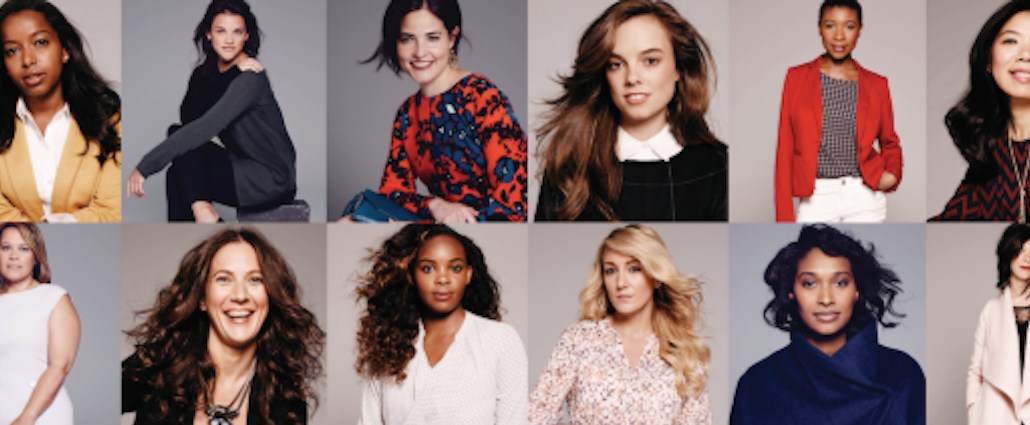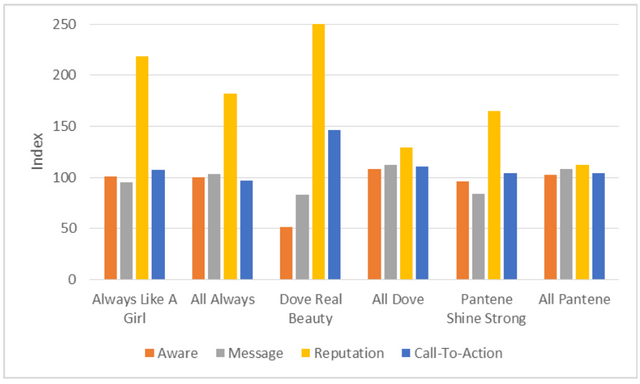Secure your place at the Digiday Media Buying Summit in Nashville, March 2-4
The Limited’s new campaign features ‘real women’ in leadership positions

The Limited is the latest womenswear brand to ditch airbrushed models in favor of featuring “real women” in its ads. For its fall campaign, “The New Look of Leadership,” the retailer — which primarily sells professional clothing — asked its 4,000 store associates to recruit customers in leadership positions to star in the ads; sixty women in positions of power in tech, entrepreneurial, government, healthcare and other industries appear in the campaign.
Brand ads targeting women with feel-good messages of empowerment have been in vogue for years now. Dove’s “Real Beauty” campaign is perhaps the best known, being both lauded for the amount of publicity and buzz it has garnered and criticized for tapping into women’s vulnerabilities in order to sell body wash and deodorant. Other brands to emphasize the “real woman” in marketing include Always’ “Like a Girl” campaign and Pantene’s “Be Strong and Shine.”
“For brands, these campaigns are important, but you have to still be focusing on the product for them to make sense. That’s difficult to do,”said Gary Getto, CEO of advertising analyst firm Ad Benchmark. “They’re saying, I want you to buy something, but I also want you to feel something.”
Ad Benchmark’s index scores brand campaigns based on awareness, message, reputation and call-to-action; its data found that the campaigns that send messages of empowerment were most effective in improving brands’ reputations, across the board.

Getto said that these types of campaigns strive to leave a good impression in the customers’ minds; however, what’s actually being sold can get lost in the message.
“The real trick and key to whether these ads are effective or not depends on if it’s pulled back toward the product; it has to be relevant,” said Getto, who added that when the product is too loosely related to the ad’s message, the brand will affirm to current customers that they’re buying from a good brand but will have a harder time converting new shoppers.
For The Limited, creating a campaign around real female leaders wearing its clothing is a logical step. According to Ruth Bernstein, co-founder and chief strategic officer of the agency Yard that worked on the campaign, the goal was to “portray women’s workwear in a new lens.”
“Empowerment campaigns engage women on an emotional level — that’s why they resonate,” said Bernstein. “However, for the Limited, we believed women had heard enough debate about whether or not they can have it all. They already feel empowered; they are already leading from many seats, and we felt it was time to move the conversation forward.”
So The Limited’s inclusion of real women in its campaign is less meant to empower than to celebrate achievement, according to Bernstein. The company is also looking to drive conversation online.

“We’re hoping that [the campaign] inspires women to be more active and engaged in discussions on leadership – their own leadership, the leadership mentoring they do for others, and most importantly, the idea that leading is a philosophy, not a job title,” said The Limited CEO Diane Ellis.
As The Limited hopes to spark conversation as its sells product, it has to be authentic to its “brand tonality,” according to Katie Ford, president and managing Director at Mediavest.
“It could be looked upon as a way to get on the ‘real women’ campaign wagon,” said Ford. “I like the notion that they’re looking at women in leadership roles rather than just empowerment. They’re going down an interesting path.”
However, Ford added that the campaign has no element of contribution — a tie to a charity for underprivileged women, for instance — which could make it more meaningful. But overall, Ford and Getto agreed that the message fits with the product being sold.
“We want to show women that they can lead from any position, while enjoying more options beyond the pantsuit,” said Bernstein. “Leadership doesn’t have to look like the pantsuit — even Hillary could use an update.”
More in Marketing

Future of Marketing Briefing: AI’s branding problem is why marketers keep it off the label
The reputational downside is clearer than the branding upside, which makes discretion the safer strategy.

While holdcos build ‘death stars of content,’ indie creative agencies take alternative routes
Indie agencies and the holding company sector were once bound together. The Super Bowl and WPP’s latest remodeling plans show they’re heading in different directions.

How Boll & Branch leverages AI for operational and creative tasks
Boll & Branch first and foremost uses AI to manage workflows across teams.





